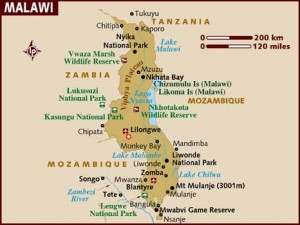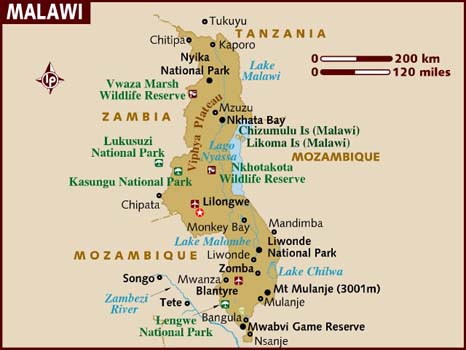
It is entirely probable that had Britain not experienced wave upon wave of post war immigration, a phenomenon that now manifests itself as colonisation, that Britain would have a stable population of less than 50 million.
Incredibly, whilst mainstream environmentalists busy themselves campaigning against the effects of overpopulation, such as urban creep, increased pollution and road building for instance, they never address the underlying cause.
Indeed, in what any rational person would regard as hypocrisy of the highest order, such people find no contradiction in, on the one hand, complaining about environmental degradation whilst, on the other hand, opposing limits on immigration!
The Green “Melon” Party (a red seedy mass concealed in a green skin) for instance, claims to be opposed to environmental degradation whilst promoting a virtual open door immigration/asylum policy.
On the international scene few people know that the globalist “one world” United Nations (UN) has declared today, July 11th, as “World Population Day”; just three months before global population is expected to crash through the seven billion mark.
In actual fact the UN first declared July 11th to be “World Population Day” in 1987 as that was the day global population was estimated to have reached five billion.
In the 24 years that has elapsed since then the tally has increased by a further two billion.
Tragically, at global level, there is a direct correlation between poverty and population increase.
According to the experts some of the world’s poorest nations will double their populations within the next ten years.
Perhaps more disturbing still is the extrapolation that global population will pass the eight billion mark as soon as 2025 – far earlier than the experts were predicting towards the end of the last century.
Statistics show that the world’s five most populous countries are China (1.3 billion), India (1.2 billion), the United States (310 million), Indonesia (243 million) and Brazil (201 million).
The statistics also reveal that Africa’s population between 1950 and 2000 has more than trebled, expanding from 230 million to 811 million; consequently Africa is now more populous than Europe.
Nigeria, currently Africa’s most populous country (158 million), is expected to grow to an incredible 730 million by the end of this century, making it larger than Europe’s projected population of 675 million (a substantial proportion of whom will not be ethnically European).
More disturbing still, by the end of the present century Nigeria will not be the only African country having a population in excess of 100 million. Ten other African countries are expected to exceed that number: namely, the Democratic Republic of Congo, Egypt, Ethiopia, Kenya, Malawi, Niger, Sudan, Tanzania, Uganda and Zambia.
As we all know from the numerous aid appeals seen on our television screens Africa, even today, is struggling to feed itself – what hope then is there when its population is many times what it is today?
It follows that the most effective form of aid the West can provide to Africa is education relating to birth control and contraception, particularly that having the aim of instilling in young minds the singular truth that increased population results in increased poverty and starvation.
Yet massive population growth is not unique to Africa – the projections for South and Central America and Asian are equally terrifying.
Global population growth is fast outstripping advances in agricultural production; the trend in some countries, such as Brazil, to switch from growing food crops to more profitable fuel crops, compounding an already worsening situation.
Global demand exceeding global supply is partly why global commodity prices for food staples, on the world’s stock markets, are trending ever upwards.
Whereas population growth is theoretically virtually unlimited, the global acreage of agricultural land is not.
Food security for Britain, indeed the whole planet, is deteriorating by the day.
That threat, together with the detrimental impact upon our environment arising from overpopulation, is why this grossly overpopulated country of ours must slam the door firmly shut on immigration and increase agricultural production capacity as a matter of urgency.
Top 10 Music
Upcoming Events
Zomba City Festival

Fri, 26 Apr 2024 10:00:00 UTC @ Botanic Garden - 2024 Zomba City Festival is schedulled to take place on 26 to 28 April at Botanic Garden in Zomba This is a festival for all ages in the historic mountain city of Zomba. Celebrate Cultu... More Info

Fri, 26 Apr 2024 10:00:00 UTC @ Botanic Garden - 2024 Zomba City Festival is schedulled to take place on 26 to 28 April at Botanic Garden in Zomba This is a festival for all ages in the historic mountain city of Zomba. Celebrate Cultu... More Info
Queens Club Shut Down

Fri, 26 Apr 2024 19:00:00 UTC @ Queens Club - Queens Club Presents "Queens Club Shut Down" with music performances by Kelly Kay, Charisma, Teddy Makadi and Praise Umali. The show will take place at Queens Club in Mzuzu on 26 April... More Info

Fri, 26 Apr 2024 19:00:00 UTC @ Queens Club - Queens Club Presents "Queens Club Shut Down" with music performances by Kelly Kay, Charisma, Teddy Makadi and Praise Umali. The show will take place at Queens Club in Mzuzu on 26 April... More Info
Overpopulation and Food Security




.jpeg&w=60&q=100&h=60)






